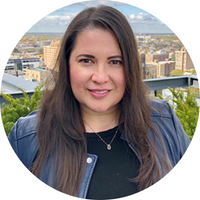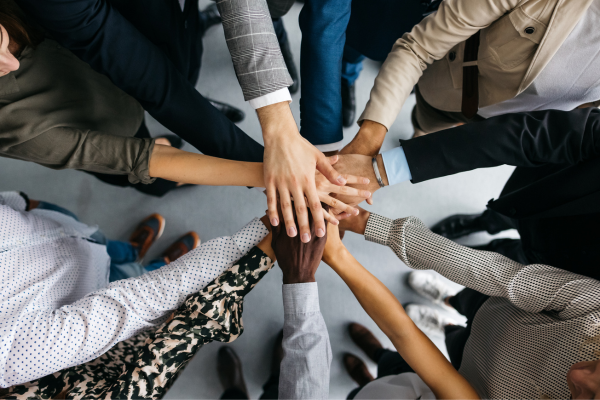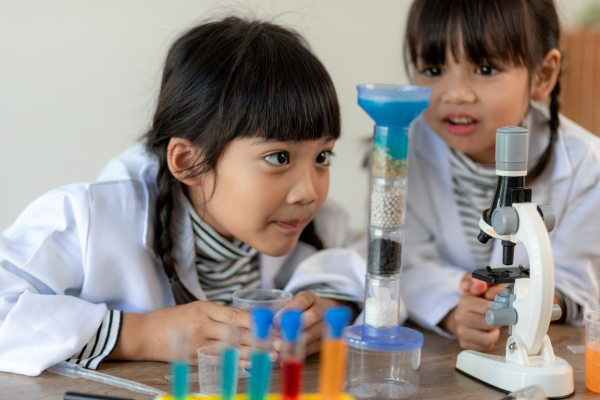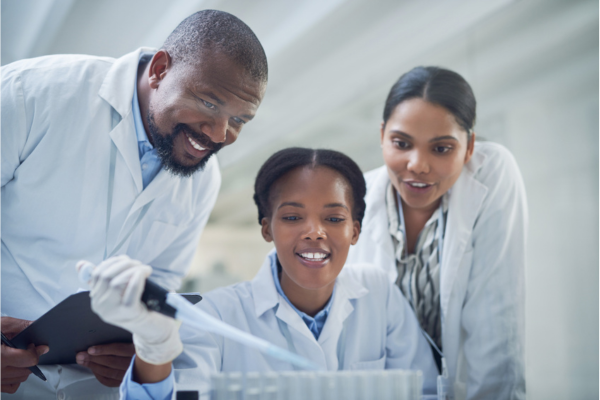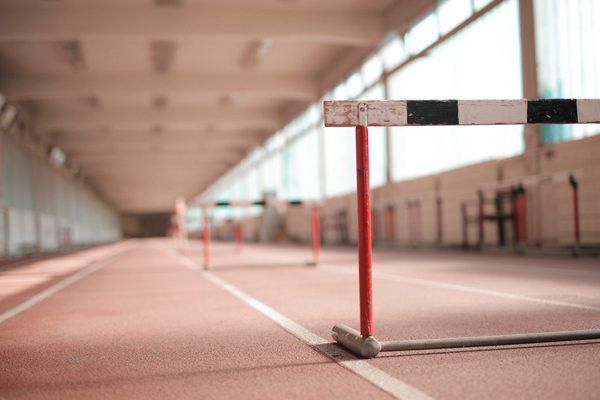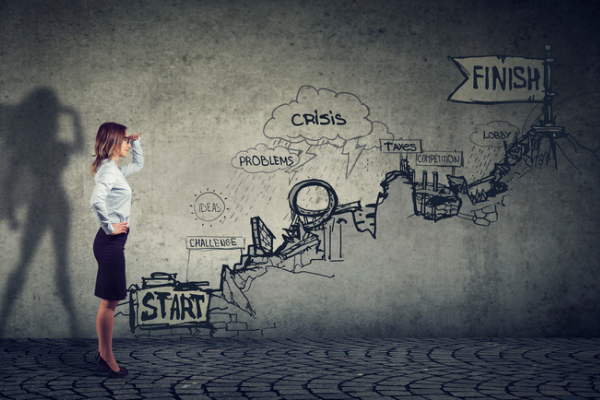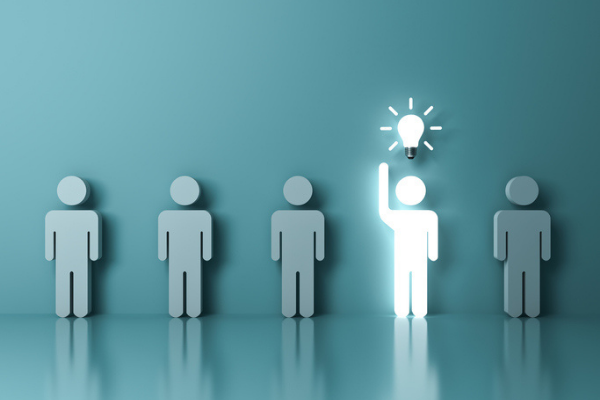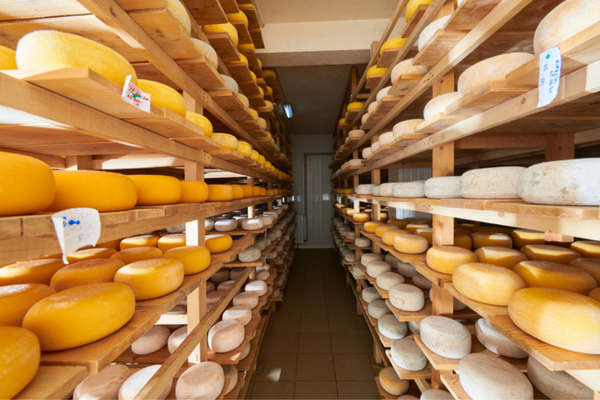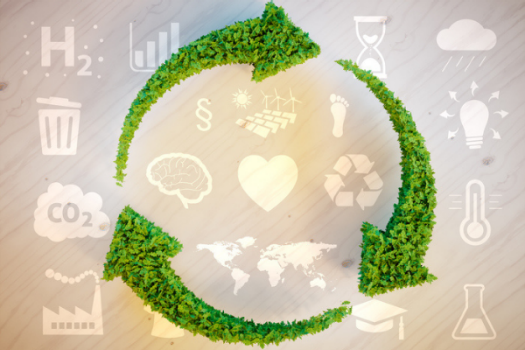
After spending 12 years at Dow, what did you learn that is proving to be most valuable in executing your responsibilities with Sims Limited?
I learned a lot working at Dow, and I was fortunate that I was able to grow in the sustainability field, as it was just becoming mainstream. Here are a couple of things I learned while at Dow:
It is all about people. You spend so much time interacting with people at work that inevitably they will have an impact on you and you on them. Through my time at Dow, I connected with so many wonderful individuals that helped me grow as a professional and as a person. Some provided me with technical knowledge, others with advice; some served as role models, while others offered me career opportunities, and many became my friends.
While I did not see myself as particularly good at networking, with time I learned that I was good at it just in my own way. To me, networking needs to feel genuine, which is a little slower but deeper. Your network makes you stronger, and having others that are willing to help you when you need it and that want to work with you, is priceless. Remember, it is a two-way street: give back.
Take control of your career path and brand yourself. I was on my second year at Dow when I started learning about what sustainability is and it immediately resonated with me. I decided to pursue a masters in Sustainability and Environmental Management while working. I made sure to share the knowledge I was gaining with others, proposing and implementing initiatives, and more importantly, providing clarity to my leaders and mentors to where I wanted to go. That way, when a sustainability related opportunity came up, my name started to be associated with it. Success does not look the same for everybody, so be honest with yourself and create your own path.
Think about legacy early on and help others thrive. Often, the concept of legacy comes up towards the end of one’s career. As a young professional, you are trying to figure out your work and move up the ladder. You might think that only with more work experience you will have enough wisdom, power and time to work on legacy. Perhaps, this is because most people might see legacy as one grand event that affects many people. The reality of it, as I see it, is that each of us is building legacy everyday through the actions we take and the people we touch. It does not have to be big.
When I joined the company, I was at Freeport, TX- one of the largest sites, and I thought it would be great to have an event for Earth Day. So there I was, with five peers and 3 posters in the cafeteria, distributing seeds to people coming by. Funny to think about it now. But it got better and better every year, with external organizations such as The Nature Conservancy and Ocean Conservancy joining us, with employees presenting posters about projects they were working on, and games and prizes to actively engage with the more than 400 people that came during the 90 minute event. I ran it for 3 years but it continued growing without me, and that was a great feeling. Empowering and inspiring others fills me with joy.
What were some of the more memorable adjustments you had to make as you transitioned from your university years to your first job in industry? Any advice for people currently in university to ease their path?
I had the amazing opportunity to travel extensively for work: more than 65% of the time, in my first job out of college. At first, the notion of traveling made it very exciting and glamorous. So there I was, fresh out of school, visiting customers, representing a global company in another country as the expert of the application at hand. That feeling of being a real grown up, with a big responsibility, where I was not only representing myself but an organization, took a while to sink-in. However, knowing that I was part of a team of seasoned experts strengthened my confidence because I knew I was not really alone. My advice is to truly value being part of a team, reach out to your team members and trust in yourself and your abilities.
How did your parents influence your leadership style?
Inclusive Leadership: I am originally from Medellin, Colombia and I always saw my parents treat everybody with respect and give them time and attention, regardless of where they came from. They were interested in learning about the life story of others and that is something I inherited. There is a lot of wisdom to be learned by listening and learning about others and their paths and their stories of struggle, which connect us all as part of our human condition. This inherited curiosity about people makes it simple for me to connect with others and feel comfortable around strangers.
So, even when I have to work with somebody that has very opposite views to mine (e.g. climate denier), I get intrigued about their life experiences that shaped that person’s thinking, and that drives me to understand what motivates them to find a common ground. I think that as a leader, when you get to work with many different people, this type of emotional intelligence is required to make them feel heard and understood.
Purposeful Leadership: I always remember my mom preaching: “Academic degrees are meaningless if they are only hanging on a wall, unless you use them to help society do better.” That has stayed with me, and once I got to understand the role I can play as a professional, it felt incredibly fulfilling to do something that not only provides for me but that has a positive impact.
In April 2018, while with Dow, you said, “The more people who actively incorporate sustainable thinking into their everyday lives, the greater chance we have to create long‐lasting positive change.” What should be the role of the U.S. education system in driving this change?
I strongly believe that sustainability as a concept and as a way of thinking should be part of what is taught, from early on in schools through college and even in the workplaces. Individuals need to be empowered to make choices and take actions that will be conducive to a better world.
Sustainability requires a mindset shift that comes with an understanding of the impacts that processes, services, policies and even behaviors have on people, the planet, and overall prosperity. While at Dow, I developed a program called the Sustainability Academy, a global employee development program that consisted of a week’s sustainability in business acumen training at a university depending on the country, as well as a six months hands-on experience with a sustainability project. Since sustainability covers everything, we need professionals and experts on a large array of topics: ethics, governance, HR, operations, R&D, supply chain, etc. to see their area through the lenses of sustainability.
What are the primary drivers of this challenge, and what can the average person do to help diminish this waste stream?
The way that we access and create content has changed significantly over the last 20 years. Not only do most of us own and use a cell phone, laptop, tablet, etc., but also more than ever, all of us are now streaming and creating digital content. All of it needs to be stored, either on local computer drives or in the cloud, for us to be able to access it on demand. That means an exponential growth of data centers.
As individuals, we can be more aware of our electronics consumption habits and know what we really need. Electronics should be used for as long as they are useful, instead of falling into the trap of replacing a gadget every time a new one with slight updates is released. But even if that is the case, you can also resell them, or make sure to send them to an electronics recovery center, where business like Sims Lifecycle Services will refurbish, or harvest parts before recycling their materials.
It’s 2040. What is providing humanity with its greatest challenge? Access to food? Water? Energy? Clean air? Something else?
All of the above are interconnected. I see climate change as the biggest driver of a paradigm shift by 2040. We will have more climate refugees, access to food and water in some areas will be compromised, which will also exacerbate income and wealth inequality. How will society, governments and global organizations respond to this shift? How will the power of the wealthy influence actions taken? How will people activate to bring positive change? That will be the challenge.
What is the one personality trait that has been most instrumental in your career success? What trait do you wish you had in greater supply?
I think perseverance has been instrumental. The sustainability world comes with many frustrating moments. Each time a proposal is not approved or not supported, or is not moving at the speed it needs to, I just have to attempt again, but this time from a different angle or bring on board more allies to strengthen the case.
It might seem contradictory, but I wish I had more patience. As sustainability requires a lot of leading through influence, many would think that I am very patient, but inside my head I am going miles per hour and calming myself down. So, I wish I was more patient, as it would make it easier for me to take things with ease.
You spent a year as an exchange student. What did you learn from that experience? What type of student would most benefit from participating in a student exchange program?
Everybody! It was such an amazing experience to be able to dive into another culture and see other approaches, to not only education but also lifestyles. Granted, I was already experiencing some of that, as I moved to the US to start college, but this exchange showed me an even bigger world with more complexities, tones and hues. It made me savor the differences between cultures, which helped me develop a cultural intelligence and embrace diversity, something that I was not exposed much to growing up. Therefore, if somebody has plans to work for a global company or with clients around the world, and has the opportunity to experience studying in another country, I would definitely go for it.
If you had an extra hour today, how would you spend it?
Probably connecting with friends and family, trying out a new recipe, and sharing quality time with my partner, Paul. At the end of the day, life is all about people and sharing moments with them.
About the Contributor
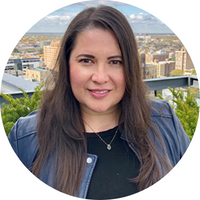
Since August 2019, Erica Ocampo has served as the Global Director of Sustainability for Sims Limited, a newly created position. She has led the development of science-based, company-wide sustainability strategy aligned to the company’s purpose narrative and growth strategy. From data management to climate change goals development, Erica is integrating ESG [Environmental, Social, and Governance] principles across the company.
Prior to Sims, Ocampo worked for Dow starting in 2007 where she spent three years as a plastics technical support & development engineer for the Latin America region’s rigid packaging, pipes and rotomolding markets. In 2010, she then began working with the Environmental, Health and Safety department overseeing environmental regulations and compliance for several units at Dow Texas operations as an environmental specialist. In 2012, Erica took the North America sustainability and advocacy manager role for Dow Packaging and Specialty Plastics. In this capacity, Ocampo worked to facilitate the implementation of energy recovery projects, worked with the entire value chain to address sustainability challenges faced by plastic packaging, and collaborated with other sustainability industry leaders. In 2015, Ocampo moved to the corporate sustainability group, where she was responsible for Dow’s sustainability reporting, including Dow’s Annual Sustainability Report and Dow’s annual submission to the Dow Jones Sustainability Index. Ocampo was also responsible for the development and annual evaluation of Dow’s Sustainable Chemistry Index, which measures each the sustainability performance of each business unit. She also developed and led Dow’s Sustainability Academy; an employee development program that provides participants with the tools needed to bring sustainability business insights into their day-to-day jobs as well as hands-on experience with sustainability project. In 2017, Ocampo became the global sustainability strategy manager for Dow’s Consumer Solutions business. In this role, she focused on the strategy development across the business to align to Dow’s 2025 Sustainability Goals and manage key external value chain partnerships.
Ocampo received a master’s degree in sustainability and environmental management from Harvard University Extension School and a Bachelor of Science degree in chemical engineering from the New Mexico Institute of Mining and Technology. Ocampo is passionate about sustainability and is determined to drive value from ESG risks and opportunities to support the alignment of society’s values with market forces.
This article has been edited for length and clarity. The opinions expressed in this article are the author's own and do not necessarily reflect the view of their employer or the American Chemical Society.
Copyright 2020 American Chemical Society (All Rights Reserved)

